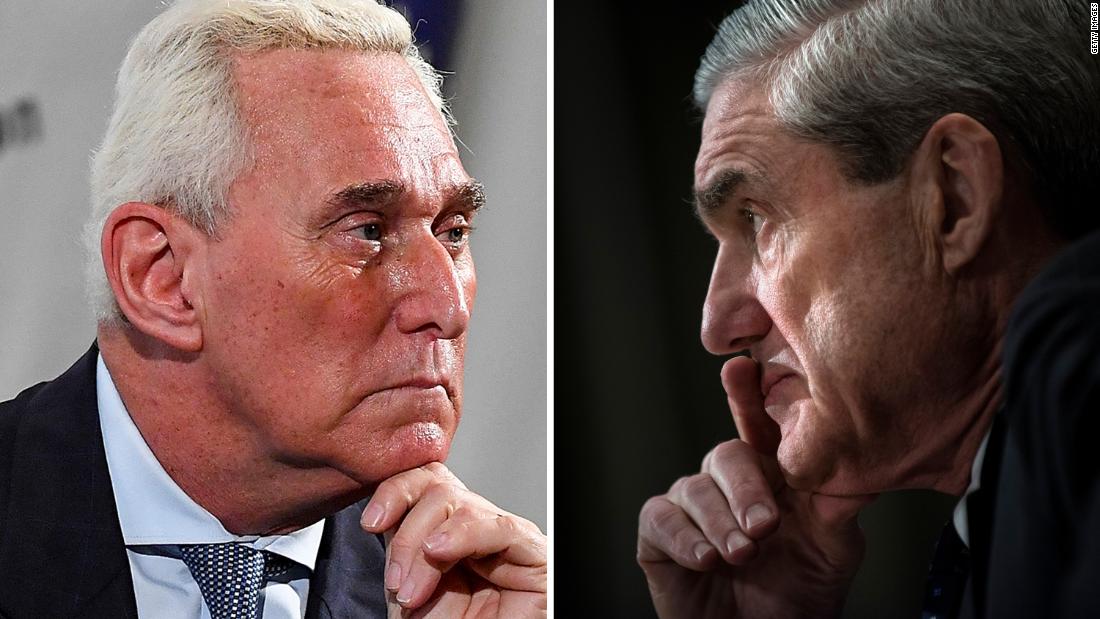In a rare move following Trump’s decision to commute Roger Stone’s sentence, the former special counsel addresses the case in a Washington Post op-ed
“Congress also investigated and sought information from Stone. A jury later determined he lied repeatedly to members of Congress. He lied about the identity of his intermediary to WikiLeaks. He lied about the existence of written communications with his intermediary. He lied by denying he had communicated with the Trump campaign about the timing of WikiLeaks’ releases. He in fact updated senior campaign officials repeatedly about WikiLeaks. And he tampered with a witness, imploring him to stonewall Congress,” Mueller writes in the op-ed posted Saturday evening.
“The jury ultimately convicted Stone of obstruction of a congressional investigation, five counts of making false statements to Congress and tampering with a witness. Because his sentence has been commuted, he will not go to prison. But his conviction stands.”
Stone was convicted in November of seven charges — including lying to Congress, witness tampering and obstructing a congressional committee proceeding — as part of Mueller’s Russia investigation. Among the things he misled Congress about were his communications with Trump campaign officials — communications that prosecutors said Stone hid out of his desire to protect Trump.
“Russian efforts to interfere in our political system, and the essential question of whether those efforts involved the Trump campaign, required investigation. In that investigation, it was critical for us (and, before us, the FBI) to obtain full and accurate information. Likewise, it was critical for Congress to obtain accurate information from its witnesses. When a subject lies to investigators, it strikes at the core of the government’s efforts to find the truth and hold wrongdoers accountable. It may ultimately impede those efforts,” Mueller said in the op-ed.
Mueller also pointed out that the people involved in the investigations and prosecutions acted with the “highest integrity.”
“We made every decision in Stone’s case, as in all our cases, based solely on the facts and the law and in accordance with the rule of law. The women and men who conducted these investigations and prosecutions acted with the highest integrity. Claims to the contrary are false,” Mueller wrote.
Trump’s decision to commute the sentence of his friend and political adviser is the crescendo of a months-long effort to rewrite the history of the Mueller investigation. This has included selective declassification of intelligence materials, a ramped-up counter-investigation into the origins of the Russia probe and attempts to drop the case against former national security adviser Michael Flynn. The President has broad constitutional power to pardon or commute sentences. But Trump is unlike almost any other president in how he’s used the power proactively to save political allies.
Trump’s move spared Stone from having to serve prison time after Judge Amy Berman Jackson sentenced him in February to 40 months in prison.
This story has been updated with additional details.
CNN’s Brian Rokus, Gloria Borger, Shimon Prokupecz, Sara Murray, Kaitlan Collins, Katelyn Polantz and Kelly Mena contributed to this story.
![]()


